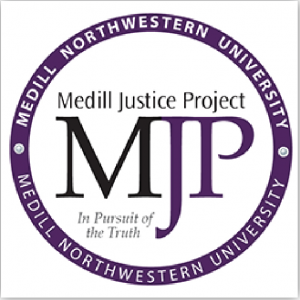
FINALIST
Podster Magazine Best Undiscovered Podcast Competition
Reminiscent of Serial, Death Denied digs into the case of a man convicted of a quadruple homicide four decades ago. We talked to host Fallon Schlossman.
http://medilljusticeproject.org
Podster: What is the premise of your podcast?
Fallon Schlossman: Death Denied follows 10 graduate and undergraduate students as they investigate a quadruple homicide that took place on Christmas Eve in 1975. Over the course of 10 weeks, Medill Justice Project students at Northwestern University re-examine Tommy Zeigler’s conviction.
The Medill Justice Project is meant to be a learning experience for the students. For many of the students, it’s their first investigation; for some, their first foray into the world of journalism. Like any other class, students do their readings, complete their assignments and share their findings. But it is unlike any other class because it extends so far beyond the borders of a classroom, because it is founded on a 40-year-old tragedy, because there is a man on death row.
In their search for the truth, the students examine ballistics, comb through court documents, build models of the crime scene, time out driving routes and talk to surviving witnesses, lawyers and police on duty the night of the crime. And they interview Tommy Zeigler himself.
I think what makes this series different from many true-crime podcasts is that it really focuses on the students’ experience. It’s a complicated case, filled with questions that are hard to ask and even harder to answer. Through the students, we not only participate in the investigation but we also share their frustrations and their growth from first look at the case to nuanced understanding of the intricacies of a crime that happened well before any of them were born.
Podster: How did you decide on the structure of the podcast?
Fallon: Throughout the series, I focused on finding a balance between the students’ experience and the case itself. Bridging the geographic divide and the four decades since the crime was committed, I aimed to integrate the voices of the students and of the subjects of their investigation in every episode. I wanted to give listeners insight into the investigation as it unfolded, chronologically following the students’ process and progress.
Podster: What do you hope your listeners will take away from your podcast?
Fallon: I hope listeners connect with the students’ honesty, their excitement at a new find, their frustration at the criminal justice system. As the students grapple with guilt and innocence, with putting aside their own beliefs and biases in search of any verifiable truth, listeners have the opportunity to learn along with the students what it really takes to investigate a potentially wrongful conviction.
Fallon listens to:
I’m always searching for podcasts that showcase different styles of storytelling. My all-time favorites are Radiolab, Snap Judgment, The Moth, and 2 Dope Queens. While their methodologies are different—whether it’s Snap Judgment’s application of musical composition to the spoken word or 2 Dope Queen’s emphasis on real talk from a diverse set of voices—these four podcasts always leave me with something to think, laugh, or cry about.
